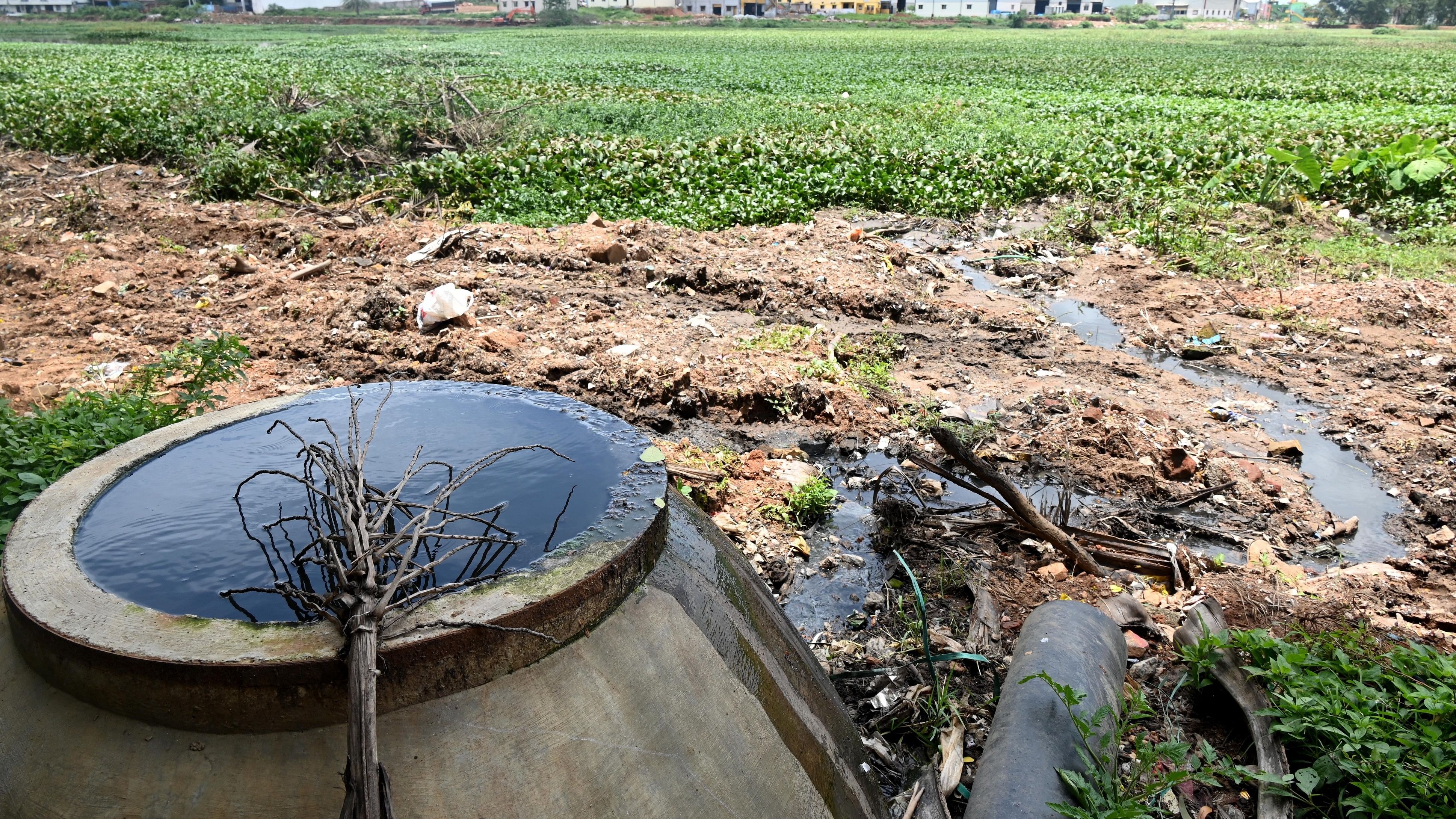
Semi-treated water flows into Narasappanahalli Lake in the Peenya Industrial Area.
Credit: DH photo
Bengaluru: Many of the lakes attached to a sewage treatment plant in Bengaluru have breached multiple water quality parameters, prompting a critical relook at the effectiveness of quality control mechanisms, a study has revealed.
ActionAid Association conducted the study between May and August 2024 to evaluate the performance and contribution of 15 STPs associated with lakes under the jurisdiction of the Bruhat Bengaluru Mahanagara Palike (BBMP) and assessed their water quality by analysing publicly available data from the Karnataka State Pollution Control Board (KSPCB).
Water quality analysis reports from the KSPCB were analysed for 31 months from January 2022 to July 2024, including reports from January to October, 2023, that were obtained by the BBMP via RTI. Additionally, ActionAid visited six of the 15 lakes to gather supplementary information.
The water quality of Kalena Agrahara, Bhattarahalli and Iblur Lakes was under Class D, which is desirable for wildlife and fisheries, in more than 75% of the reports in 31 months. Nine others had a ‘Class E’ quality, which is not suitable for wildlife, more than three times. At least four of them had over 10 reports classifying the water quality as Class E.
Additionally, water quality analysis reports from ten STPs did not contain ammoniacal nitrogen and total nitrogen, two of the seven testing parameters suggested by the KSPCB. Fecal coliform parameter was missing in the Munnekolal Lake STP’s reports.
The study also claimed that reports from Kalena Agrahara and Challakere STPs were “questionable” as the values under different parameter remained unchanged across several months, raising questions about the accuracy of data collection and reporting.
Algal bloom, pollution, untreated sewage were seen in at least four of the lakes visited, while Kammagondanahalli Lake was completely dry.
Three of the 15 lakes — Iblur, Challakere, Bhatrahalli — had reported instances of fishkill last year, which the study highlighted as “potential shortcomings in pollution control and water quality management efforts”. This underscores a need to reevaluate the effectiveness of existing STPs in preserving lakes’ ecological integrity, noted the study.
Cut-off box - Recommendations to BBMP Comprehensive evaluation of all STPs Conforming water quality tests to KSPCB standards Investigating Kalena Agrahara and Challakere STP reports Placing a monitoring system or handing over STPs to the BWSSB Adhering to effluent standards for STPs as reinstated by the National Green Tribunal (NGT) on April 30 2019